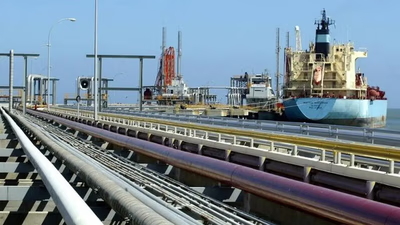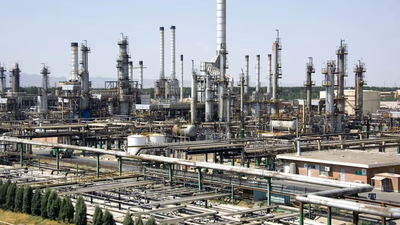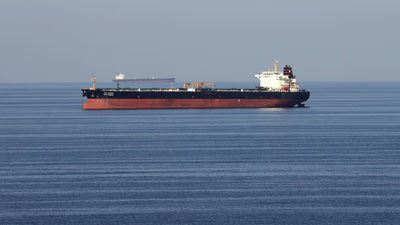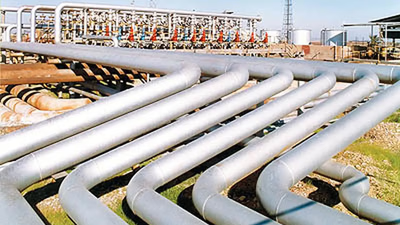
Exploring petroleum products and trade in the Middle East.
Diesel fuel, industrial gas oil, and domestic fuel are also included in this section. But many refinery products no longer use fuel, including asphalt, base oils or lubricating oils, propylene, and a variety of aromatics. Asphalt, which is used to make roads and roofs flat or impenetrable, is one of the most widely used petroleum products. On the other hand, lubricating oils that are used for industrial machinery or car engines, and because of their properties, prevent the friction of surfaces and damage to surfaces. Waxes, greases, kerosene, sulfur, and petroleum coke have also been introduced as non-fuel petroleum products. West Asia, also known as the Middle East, is home to some of the world's largest oil-producing countries and plays a significant role in the global petroleum industry. The region's petroleum resources have shaped its economies and geopolitical dynamics.
West Asia possesses vast reserves of crude oil, accounting for a significant portion of global oil reserves. Countries such as Saudi Arabia, Iraq, Iran, Kuwait, and the United Arab Emirates (UAE) have substantial oil reserves and are major players in the global oil market. West Asian countries, along with other oil-producing nations, are members of the Organization of the Petroleum Exporting Countries (OPEC). OPEC is an influential organization that aims to coordinate and stabilize oil prices by regulating oil production levels among its member countries.
Saudi Arabia is the largest oil producer in West Asia and one of the largest in the world. It has significant spare production capacity, enabling it to respond to fluctuations in global oil demand. Other significant oil producers in the region include Iraq, Iran, Kuwait, and the UAE. West Asia is home to critical maritime chokepoints that are vital for global oil transportation. The Strait of Hormuz, located between Iran and Oman, is a narrow waterway through which a significant portion of the world's oil shipments pass. The Bab el-Mandeb Strait, situated between Yemen, Djibouti, and Eritrea, is another important chokepoint.
West Asia has developed a robust petrochemical industry, leveraging its petroleum resources. The region has established petrochemical complexes that produce a wide range of downstream products, including plastics, fertilizers, chemicals, and synthetic fibers. Oil revenues have had a profound impact on the economies of West Asian countries. They have played a crucial role in infrastructure development, government budgets, and investment in various sectors. Oil exports are a significant source of income for many nations in the region. The presence of abundant petroleum resources in West Asia has contributed to geopolitical tensions and conflicts. Control over oil reserves, pipelines, and transportation routes has been a factor in regional politics and international relations.
Kerosene is a colorless, odorless oil that is used in the production of cosmetics and is also used in the pharmaceutical industry. This product is used in the production of shampoos and shaving pastes. Sulfurs, which in many cases have been named as a detrimental factor to petroleum products, which leads to poor product quality, when separated from petroleum products in the refinery and sold separately to various industries, is a very important and widely used petrochemical product. Petroleum coke is also a by-product of refineries used as fuel for power plants and cement plants. This product is used to make electrodes and anodes.
-

West Asia, particularly the Middle East, is a pivotal region in the global petroleum industry, housing some of the largest oil reserves worldwide. Countries like Saudi Arabia, Iraq, Iran, Kuwait, and the UAE are key players, significantly influencing global oil production and prices through their membership in OPEC. The region"s vast reserves of crude oil contribute to its economic stability and geopolitical dynamics. Beyond traditional fuels, West Asia also produces a range of non-fuel petroleum products, including lubricating oils, asphalt, and petrochemicals, which are essential for various industries. The robust petrochemical sector in the region produces downstream products such as plastics and fertilizers, further diversifying its economic base. Strategic maritime chokepoints like the Strait of Hormuz and Bab el-Mandeb are crucial for global oil transportation, making the region a focal point for international trade. Oil revenues have facilitated infrastructure development and investment across multiple sectors, although they have also led to geopolitical tensions over resource control. Understanding the complexities of West Asia"s petroleum landscape is vital for businesses and stakeholders engaged in the B2B marketplace in Asia, as it shapes trade dynamics and supply chain solutions.
-

Petroleum products are derived from crude oil through a complex refining process that begins with laboratory evaluation. The distillation of crude oil in a refinery separates it into various cuts, which may require further processing to enhance their quality. Common petroleum products include gasoline, diesel fuel, jet fuel, heating oil, and liquefied petroleum gas (LPG). Each product serves specific purposes, such as fueling vehicles, heating homes, and powering aircraft. Additionally, petroleum-based lubricants reduce friction in machinery, while asphalt is essential for road construction. The versatility of petroleum extends to the production of petrochemicals, which are vital in manufacturing plastics, synthetic fibers, and various chemicals used across industries. With over 6,000 petroleum products identified, their significance in daily life is profound, impacting everything from transportation to household cleaning products. Understanding the intricacies of petroleum refining and its products is crucial for stakeholders in the Middle East trade platform and B2B marketplaces in Asia, as these insights can drive better supply chain solutions and business networking opportunities.
-

Trading petroleum products is crucial for West Asia"s economy, with key exporters like Saudi Arabia, Iraq, Iran, Kuwait, and the UAE dominating the global oil market. The region"s extensive oil infrastructure, including refineries, export terminals, and major ports like Ras Tanura and Kharg Island, supports the trade of crude oil, refined products, and petrochemicals. West Asia is also a significant player in the petrochemical trade, exporting a variety of products used in manufacturing, agriculture, and construction. Regional cooperation, exemplified by the Gulf Cooperation Council (GCC), enhances trade and investment in the oil sector. However, market volatility due to geopolitical tensions and economic conditions can impact trading activities. The Middle East"s strategic geographical location facilitates exports to growing markets, while national companies leverage competitive advantages for successful market penetration. Trade partnerships extend globally, with exports reaching Asia, Europe, North America, and Africa through long-term contracts and spot sales. Pricing of petroleum products is influenced by global market dynamics, supply and demand, and geopolitical developments, with agreements often factoring in quality and transportation costs."
-

The export of petroleum products from the Middle East plays a crucial role in meeting the demands of neighboring countries and enhancing economic growth. By leveraging diverse oil reserves and effective operational mechanisms, exporters can cater to various market needs, ensuring customer satisfaction and financial returns. Thorough market research is essential to identify target markets, understand pricing trends, and analyze competitors. Developing a strong brand identity and implementing effective marketing strategies, both online and offline, can significantly raise awareness and promote product quality. Establishing a robust distribution network and optimizing supply chain management are vital for timely delivery and cost efficiency. Building strong relationships with customers, including oil traders and petrochemical companies, is key to understanding their evolving needs. Tailoring products to meet specific market requirements enhances competitiveness. Choosing appropriate market entry strategies, ensuring compliance with international regulations, and developing effective pricing strategies are crucial for successful exports.
Continuous exploration of new markets and diversification of product offerings can lead to growth opportunities. Collaborating with industry associations and attending networking events can provide valuable insights and partnerships. Overall, a strategic approach to the export of petroleum products can foster long-term relationships and contribute to economic development in the region.




